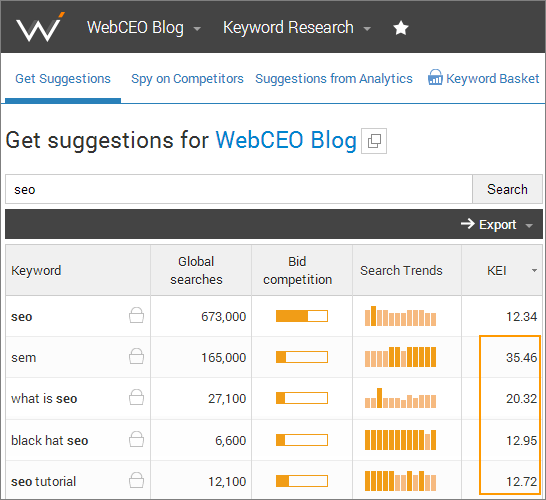
If you’ve been working at least half as long in the SEO industry as we’ve been, you should know about the KEI acronym. KEI stands for keyword effectiveness index. It was created as a statistic that reveals the most effective keyword phrases and terms to use in optimizing your web pages.
The Keyword Effectiveness Index compares the number of searches (demand) a keyword gets per month (its popularity) divided by the number of pages in a search engines index (supply). The higher the KEI, the more popular your keywords are, and the less competition they have. This means that, for a keyword with a relatively high KEI, you ought to have a better chance of getting to the top in the search engines and receive a good number of searchers for your effort.
This plain formula has stood the test of time, since the earliest days of SEO.
KEI is an important metric to rely on when you chose profitable keywords. However, the old formula has needed to be tuned slightly for the modern competitive Web. We at WebCEO updated the KEI formula to help you choose the best keywords for your sites with our Keyword Research tool.
Our KEI uses the number of global searches for a keyword divided by its bid competition coefficient to get a great estimate of the effectiveness of that keyword. We use bid competition instead of the number of pages in a search engines index, because bid competition reflects a keyword’s popularity better. A keyword that you wish to bid for can’t be unpopular by definition.
The higher the KEI the better, because this indicates that the search number is relatively high while the competition is relatively low.



